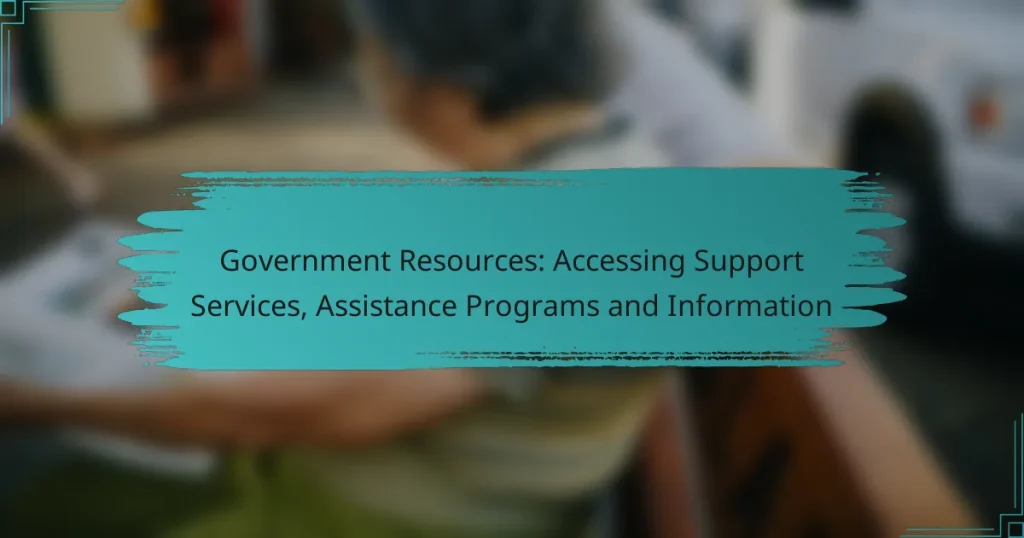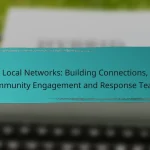The South African government provides a variety of support services aimed at enhancing the quality of life for its citizens. These assistance programs cover areas such as social welfare, healthcare, housing, education, and employment, ensuring that individuals and families receive the help they need. To access these resources, it is important to navigate the available online platforms and local offices, while also understanding the eligibility criteria that may apply.
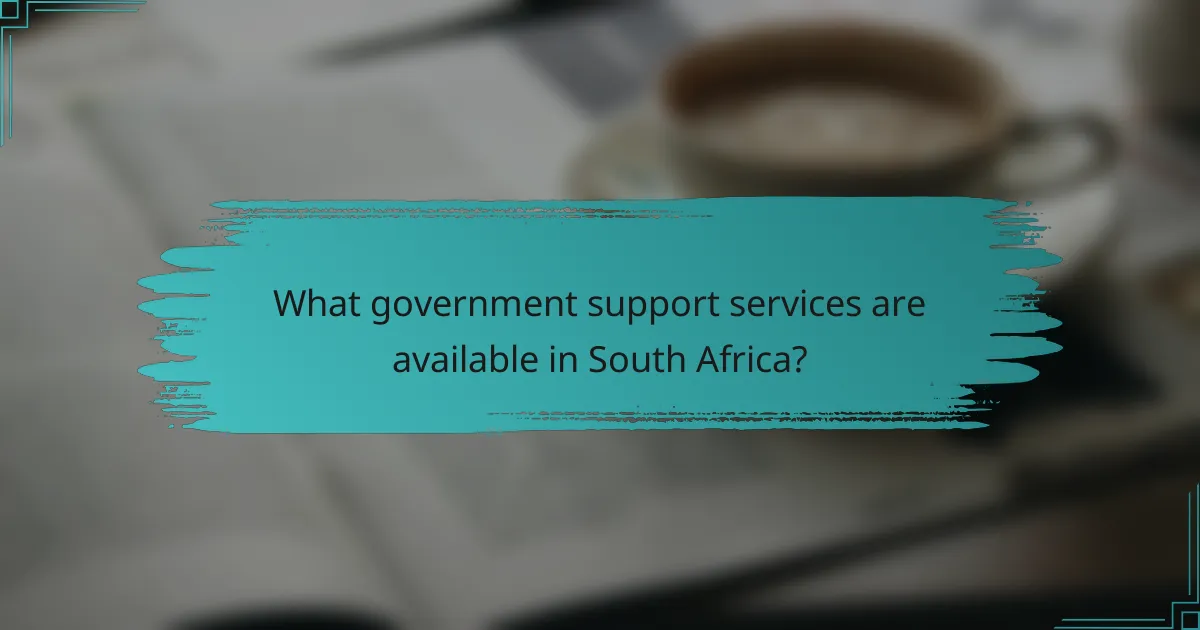
What government support services are available in South Africa?
The South African government offers a range of support services designed to assist citizens in various aspects of life. These programs include social assistance, healthcare services, housing support, education grants, and employment services, each aimed at improving the well-being of individuals and families.
Social Assistance Programs
Social assistance programs in South Africa provide financial aid to individuals and families in need. This includes grants such as the Child Support Grant, Old Age Pension, and Disability Grant, which aim to alleviate poverty and support vulnerable populations.
Eligibility for these grants typically depends on income levels and specific criteria related to age or disability. Applicants should prepare necessary documentation, including proof of income and identification, to facilitate the application process.
Healthcare Services
Healthcare services in South Africa are provided through both public and private sectors, with the government offering free or low-cost services to citizens. Public healthcare facilities provide essential medical services, including immunizations, maternal care, and chronic disease management.
Individuals can access these services at local clinics and hospitals, but may experience longer wait times compared to private healthcare. It’s advisable to register with a local clinic to receive ongoing care and access to health programs.
Housing Support
The government offers housing support through various programs aimed at providing affordable housing options. This includes subsidies for low-income families and the provision of social housing units to ensure access to safe living conditions.
To qualify for housing assistance, applicants typically need to demonstrate financial need and may be required to participate in community development initiatives. It’s important to stay informed about local housing projects and application deadlines.
Education Grants
Education grants in South Africa are available to assist students from low-income households in accessing quality education. These grants can cover tuition fees, textbooks, and other educational expenses, helping to reduce financial barriers.
Students must apply through their educational institutions or relevant government bodies, providing proof of financial need and academic performance. Staying aware of scholarship opportunities can further enhance educational funding options.
Employment Services
Employment services in South Africa focus on helping job seekers find suitable employment opportunities. The government provides resources such as job placement services, skills development programs, and career counseling to enhance employability.
Job seekers are encouraged to register with the Department of Employment and Labour and utilize online job portals. Networking and attending job fairs can also significantly increase chances of finding employment.
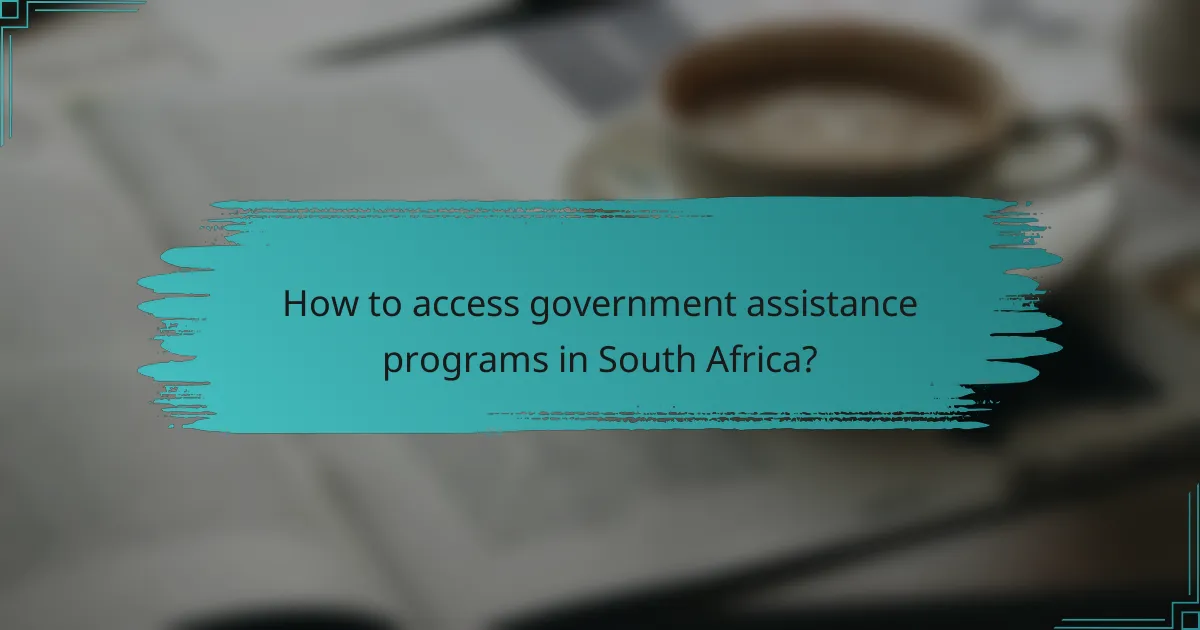
How to access government assistance programs in South Africa?
Accessing government assistance programs in South Africa involves navigating various online platforms, local offices, and community initiatives. These resources provide support for individuals and families in need, offering financial aid, social services, and essential information.
Online Application Processes
Many government assistance programs in South Africa allow for online applications, making it easier for individuals to apply from home. Websites such as the South African Social Security Agency (SASSA) provide user-friendly portals where you can submit applications for grants and other forms of support.
When applying online, ensure you have all necessary documentation ready, such as identification and proof of income. Be mindful of deadlines and specific eligibility criteria for each program to avoid delays in processing your application.
Local Government Offices
Local government offices serve as vital points of contact for accessing assistance programs. These offices can provide personalized guidance and support for individuals who may not have internet access or prefer face-to-face interactions.
Visit your nearest municipal office to inquire about available programs, application processes, and required documentation. Staff members can assist you in filling out forms and understanding the eligibility requirements for various assistance options.
Community Outreach Programs
Community outreach programs play a crucial role in connecting residents with government assistance. These initiatives often collaborate with local organizations to provide information and support to those in need.
Look for local non-profits or community centers that offer workshops or informational sessions on accessing government resources. Engaging with these programs can help you stay informed about new opportunities and receive assistance with the application process.
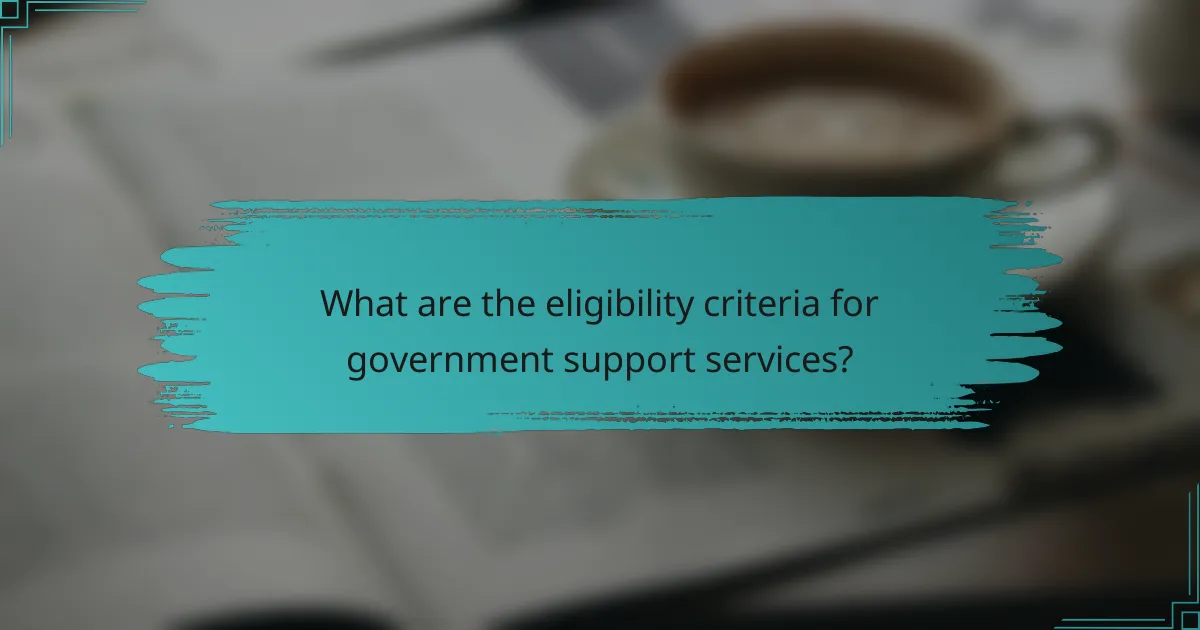
What are the eligibility criteria for government support services?
Eligibility criteria for government support services typically include income thresholds, residency requirements, and specific age or disability criteria. Understanding these factors is essential for determining access to various assistance programs.
Income Thresholds
Income thresholds are often set to determine who qualifies for government assistance. These thresholds can vary based on household size and the specific program, usually expressed as a percentage of the federal poverty level.
For example, many programs require applicants to have an income below 150% of the poverty line. In the United States, this would mean an annual income of approximately $19,320 for a single-person household. Always check the specific program guidelines for the most accurate figures.
Residency Requirements
Residency requirements dictate that applicants must be legal residents of the country or state offering the support services. This often includes being a citizen or having a valid visa.
Some programs may require a minimum period of residency, while others might have different rules based on local regulations. It’s crucial to verify your residency status and any documentation needed to prove it when applying.
Age and Disability Criteria
Age and disability criteria are important for programs aimed at specific populations, such as children, seniors, or individuals with disabilities. Many assistance programs have age limits, such as being under 18 for youth services or over 65 for senior benefits.
Disability criteria can vary significantly, often requiring medical documentation to prove eligibility. Programs like Social Security Disability Insurance (SSDI) have specific definitions of disability that must be met. Understanding these criteria can help streamline the application process.
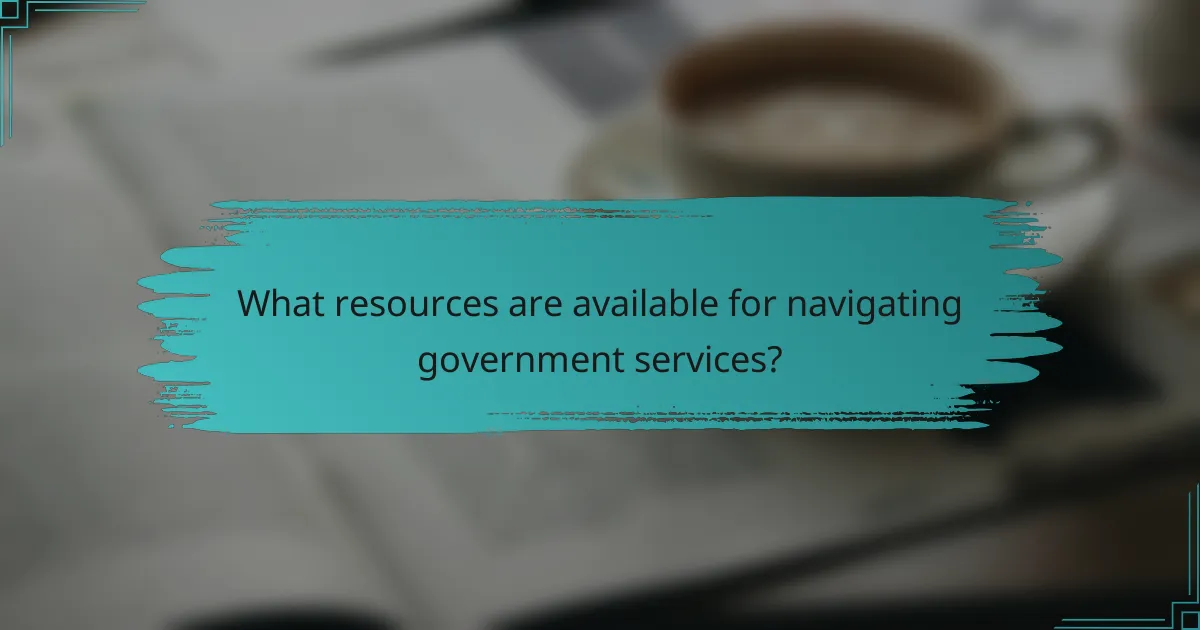
What resources are available for navigating government services?
Various resources exist to help individuals navigate government services, including official websites, helplines, and local organizations. These resources provide essential information and support for accessing assistance programs and services effectively.
Government Websites
Government websites serve as primary sources for information on available services and assistance programs. They typically offer comprehensive details about eligibility requirements, application processes, and deadlines for various support initiatives.
For example, in the United States, websites like Benefits.gov allow users to search for government benefits based on their specific needs. Users can filter results by state, ensuring they access localized information.
Helplines and Hotlines
Helplines and hotlines provide immediate assistance and guidance for individuals seeking help with government services. These resources often feature trained representatives who can answer questions and direct callers to the appropriate services.
In many countries, toll-free numbers are available for specific programs, such as food assistance or housing support. For instance, the National Domestic Violence Hotline in the U.S. offers support and resources for those in crisis.
Local NGOs and Community Organizations
Local non-governmental organizations (NGOs) and community organizations play a crucial role in assisting individuals with navigating government services. These groups often provide personalized support, helping clients understand their options and complete necessary paperwork.
Many NGOs focus on specific populations, such as immigrants or low-income families, offering tailored resources and advocacy. For example, local food banks may help individuals access government food assistance programs while providing additional support services.
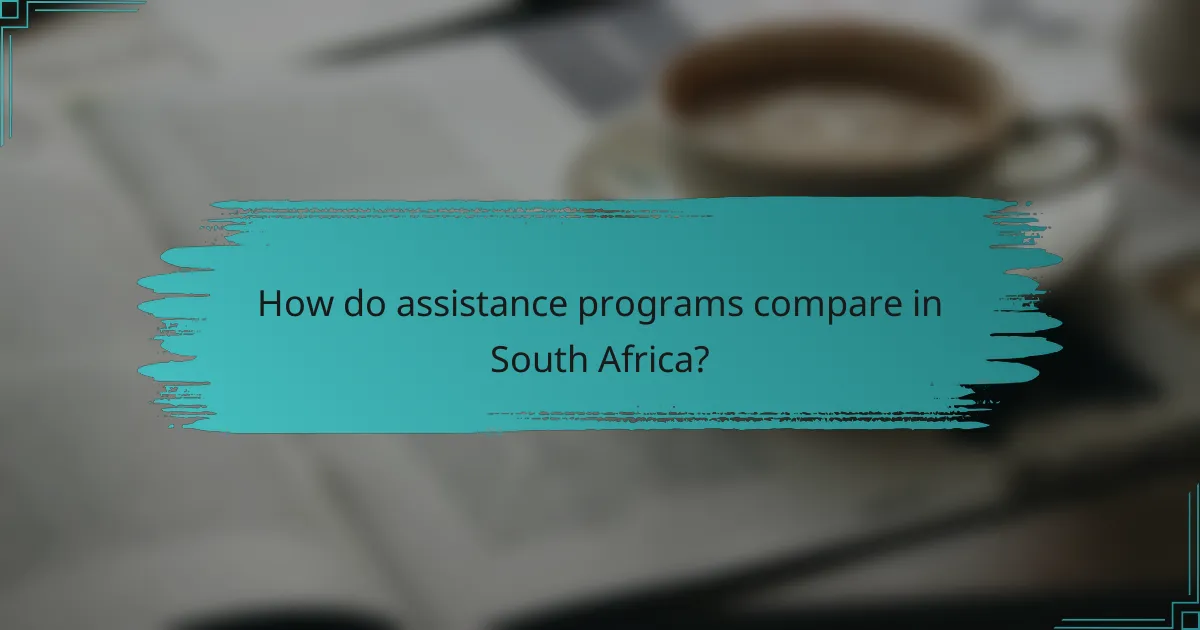
How do assistance programs compare in South Africa?
Assistance programs in South Africa vary significantly in terms of eligibility, benefits, and application processes. Understanding the differences between social grants, unemployment benefits, healthcare services, and private insurance is crucial for accessing the support you need.
Social Grants vs. Unemployment Benefits
Social grants in South Africa provide financial assistance to vulnerable groups, including the elderly, children, and people with disabilities. These grants are designed to alleviate poverty and improve living standards, with amounts varying based on the type of grant and the recipient’s circumstances.
Unemployment benefits, on the other hand, offer temporary financial support to individuals who have lost their jobs. Eligibility typically requires prior contributions to the Unemployment Insurance Fund (UIF), and the benefits are generally available for a limited duration, often up to a few months, depending on the individual’s work history.
Healthcare Services vs. Private Insurance
In South Africa, public healthcare services are provided by the government and are generally free or low-cost for citizens. However, these services can be limited in availability and quality, leading many to seek private healthcare options.
Private insurance offers quicker access to a broader range of healthcare services, but it comes at a cost. Premiums can vary widely based on coverage levels, with many plans requiring monthly payments that can be a significant expense for families. It’s essential to weigh the benefits of faster service against the financial implications when choosing between public healthcare and private insurance.
